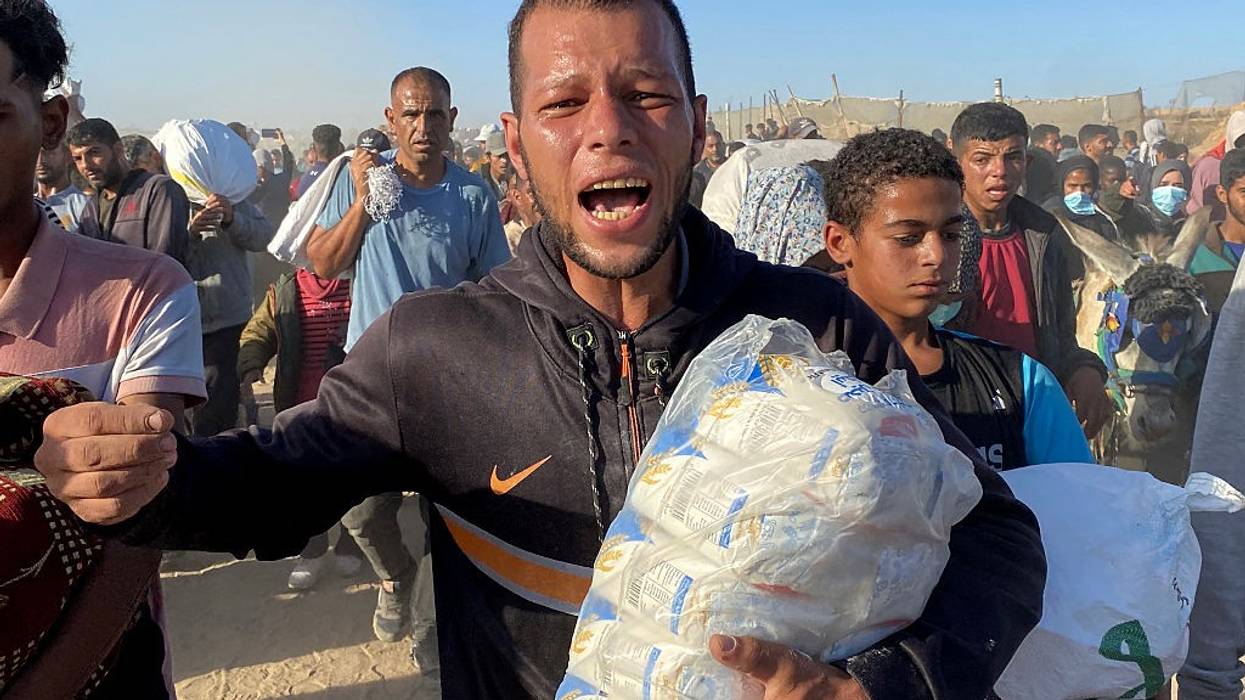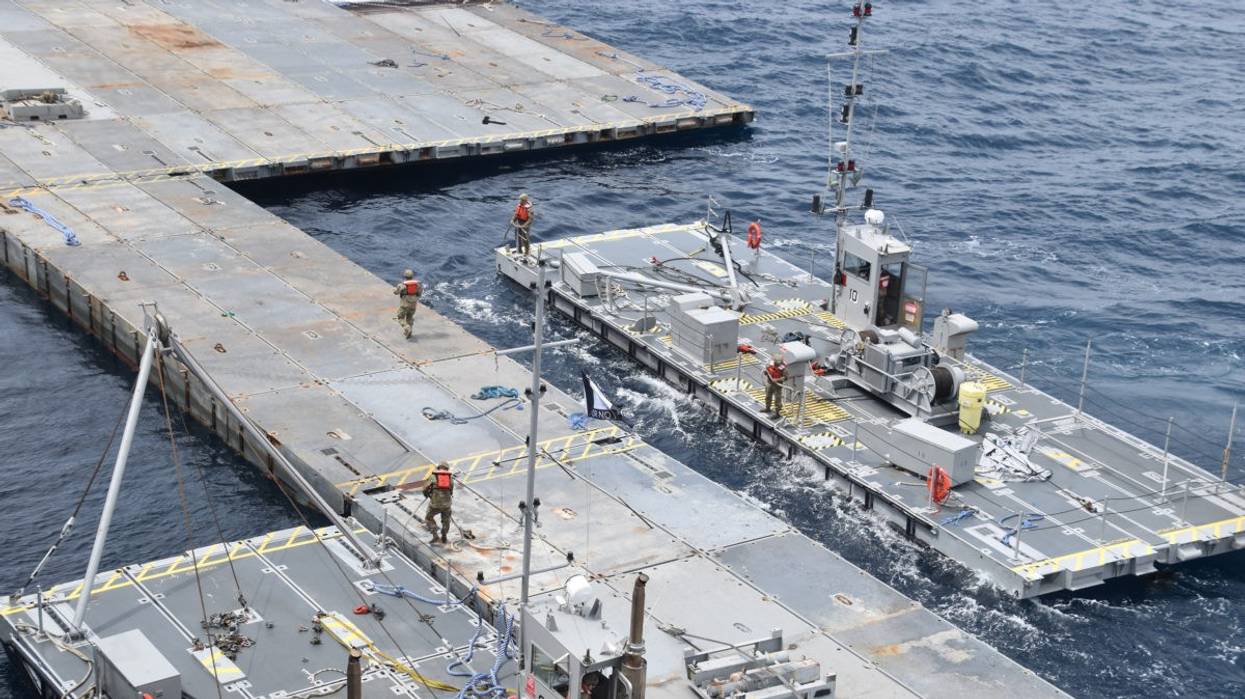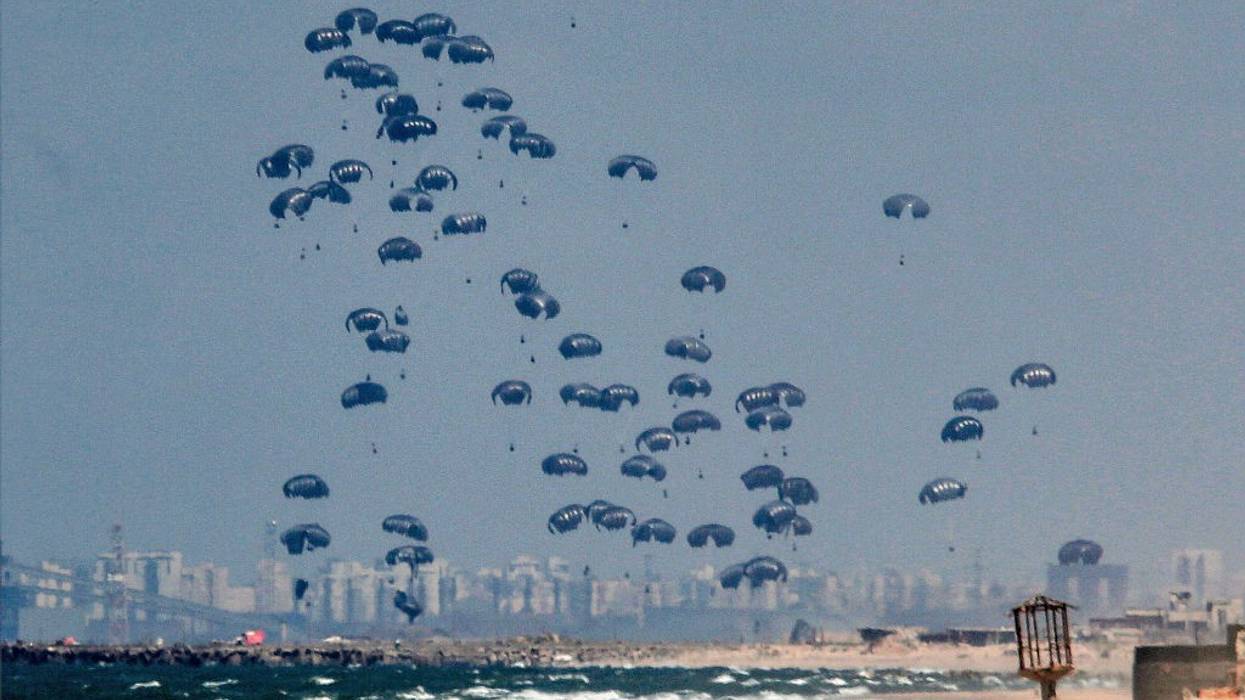Amnesty Implores Israel to Stop 'Starvation of Civilians as a Method of War'
The plea came amid Israel's killing of desperate, starving Palestinians trying to secure food and other lifesaving humanitarian aid.
As Israeli forces continued to kill and wound desperate, starving Palestinians at humanitarian aid distribution points in the Gaza Strip, Amnesty International on Monday implored Israel to stop weaponizing starvation and called on the world's nations to "take positive action to end the genocide," including to "stop arming Israel and pressure it to unconditionally lift its cruel blockade" on the embattled enclave.
"The horrific incident in Rafah yesterday in which Israeli forces shot at starved Palestinians attempting to receive food near a militarized distribution site run by the Gaza Humanitarian Foundation demands an immediate, independent investigation," Amnesty said on social media.
Hundreds of Palestinians were reportedly killed or wounded in the attack, which Amnesty said evoked the so-called "flour massacres" of February and March 2024.
"As the occupying power, Israel is obligated under international law to ensure provision of essential supplies to the occupied population."
As was the case following Israeli forces' killing of at least 118 Palestinians and wounding of 760 others during the February 29, 2024 massacre of aid-seeking people, Israel has denied responsibility for Sunday's attack in Rafah. Bullet wounds caused by the same type of large-caliber ammunition used in several Israel Defense Force (IDF)-issued rifles and machine guns undercut Israeli officials' dubious claim that most flour massacre victims died in a "stampede."
On Monday, IDF troops reportedly opened fire on Palestinians gathered to receive aid near Rafah, killing at least three people and wounding 35 others.
The Palestine Chronicle reported Monday that "at least 52 Palestinians have been killed and over 300 wounded in Israeli attacks on or near" aid distribution points since May 27.
"Aid distribution must be conducted through safe, dignified, and effective means, managed by professional humanitarian workers, not
security contractors," Amnesty stressed. "As the occupying power, Israel is obligated under international law to ensure provision of essential supplies to the occupied population."
Last year, the International Court of Justice—which is currently weighing a genocide case against Israel—found that Israel's ongoing occupation of Palestine, including the Gaza Strip, is an illegal form of apartheid that must end as soon as possible.
"The international community, notably led by the [United States], has permitted this appalling humanitarian catastrophe and genocide to unfold for far too long," Amnesty said Monday. "The use of starvation of civilians as a method of war is a war crime that the global community must urgently put an end to."
The U.S. under both former President Joe Biden and President Donald Trump has approved tens of billions of dollars in armed aid for Israel and has provided diplomatic cover, such as United Nations Security Council vetoes and pressure on nations to eschew recognition of Palestinian statehood.
Amnesty added that nations must act to pressure Israel into ending its onslaught and blockade of Gaza, which has been blamed for fueling at least hundreds of deaths from malnutrition and lack of medical care. Overall, Gaza officials say that Israel's nearly 20-month bombing, invasion, and siege of Gaza have left more than 192,000 Palestinians dead, wounded, or missing in the strip and millions more forcibly displaced, starved, or sickened.
IDF attacks reportedly killed more than 50 Palestinians since dawn Monday, with northern Gaza's
only functioning kidney dialysis center among the locations targeted for destruction.


